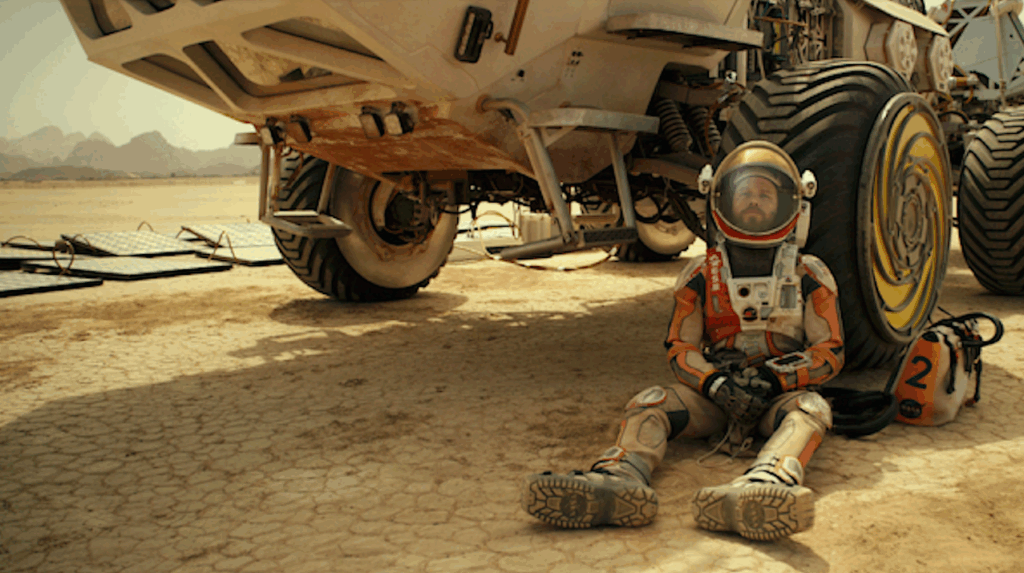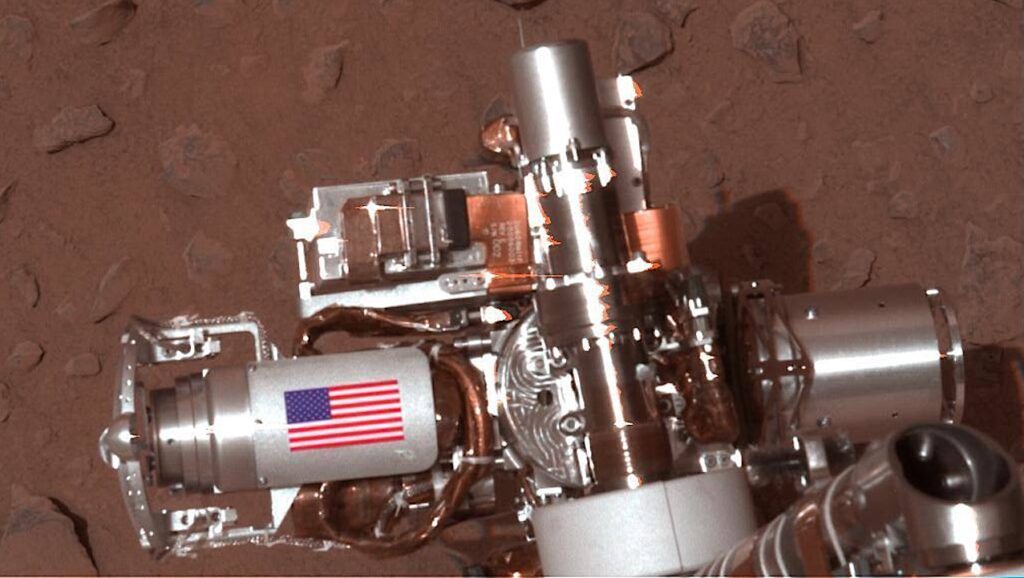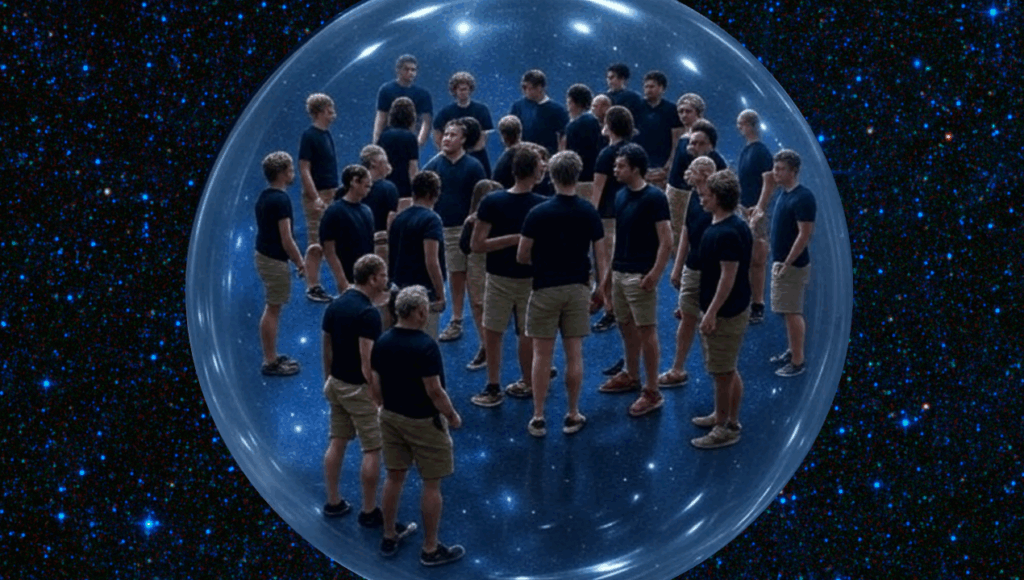Humans Do Learn From Their Mistakes

We need to change the way we talk about space exploration, National Geographic
“When discussing space exploration, people often invoke stories about the exploration of our own planet, like the European conquest and colonization of the Americas, or the march westward in the 1800s, when newly minted Americans believed it was their duty and destiny to expand across the continent. But increasingly, government agencies, journalists, and the space community at large are recognizing that these narratives are born from racist, sexist ideologies that historically led to the subjugation and erasure of women and indigenous cultures, creating barriers that are still pervasive today. To ensure that humanity’s future off-world is less harmful and open to all, many of the people involved are revising the problematic ways in which space exploration is framed.”
 Keith’s note: This article proceeds from a false premise: that human exploration will always result in subjugation and exploitation. Oops: that hasn’t happened in Antarctica. Humans can learn from their mistakes.
Keith’s note: This article proceeds from a false premise: that human exploration will always result in subjugation and exploitation. Oops: that hasn’t happened in Antarctica. Humans can learn from their mistakes.









Ah, the old “you’re doing it wrong but I’m not going to help you find the right way” narrative. There is no-one to subjugate on the moon or Mars, so I’m not sure this is something worth getting all that worked up about.
I actually got the impression she was worried about a “colony” on Mars going well. That is, that the word currently has negative connotations and she wants to keep it that way (as a reminder of past abuses.) A successful Mars “colony” might make people think that colonialism isn’t inherently evil. That’s using language for political purposes in a way I dislike (whether or not I agree about past colonialism.) And, as you point our, she doesn’t provide alternatives; perhaps she feels simply not taking about anything would do the least harm…
Since she is an astrobiologist I wonder if she still refers to groups of bacteria as colonies or has replaced it with a different term. Then you have colonies of ants, bees, penguins, etc. Will biologists start using a new term for them as well?
Don’t get me started on scientific terminology. I’ve seen too many cases of branding in science, and it really annoys me. (E.g. deliberately introducing a new term or notation when an existing one already exists, to make it “yours” and not associated with a competing research group, or using an existing term for a new phenomena, to promote an interpretation which may or may not be correct.)
If Antarctica were warm and sunny the story would be different. Or if there were oil there.
It’s easy to find a better self when giving nothing away.
There is oil there, as well as a lot of strategic materials. And let’s not forget that the first humans to the Antarctic were the sealers and whalers exploiting it resources. Indeed, the Japanese are still exploiting its whales. But its something the rest of the world, and many Japanese, now frown on.
It seems to me that a sustainable whaling industry is possible, once the population has risen enough to support it. Of course whales are intelligent, but then so is a pig.
Having said that, I don’t think I could personally eat whale – I’ve clearly been successfully indoctrinated.
Actually whale ranching, and it’s morally, was the subject of Arthur C Clarke’s novel “The Deep Range” in the 1950’s. A good discussion on the morally of exploiting another intelligent species.
Yes, but. And I seem to be saying that a lot.
There are places where eating dogs is normal and acceptable, and places were that would be considered cruelty to animals and murdering pets. I’m not sure how I would react if someone put a whale steak in front of me. But I think I might take a bite.
A vegan friend of mine once objected to a mutual friend wearing a leather jacket. Our mutual friend said, “I eat them, so why shouldn’t I wear them.” As you say, eating animals isn’t inherently bad. But doing it in a wasteful way is.
Life as a vegan is complicated and full of obscure non-choices.
My wife ordered a “Vegan Tesla”. Yep.
I bought a Tahoe, leather seats, figuring the leather was already there from millions of hamburgers; in some way, it’s honoring the dead cows.
What a world.
It’s definitely off topic, but living in Boulder, I understand how complicated things like being vegan can be. Your wife may even want to be careful about money, if and when she travels to the United Kingdom. Their new five pound notes are produced in a way that involves tallow, and many vegans in the UK have strong objections to that.
Now that you mention it, some of that oil is off shore. Look at a map and find the closest, territorially disputed but inhabited island to the Antarctic peninsula (which, by the way, is claimed by Chile, Argentina and the United Kingdom.) The Fauklands War wasn’t about the lovely climate there (which isn’t) or the large sheep population (despite the potential for exploiting the fine quality of their wool.) Politics and national prestige played a larger role, but there have always been speculations that oil was on some people’s minds as well.
Yes, that was also a possible factor. But in terms of the resources on Antarctica itself, and in the ocean near it, the Antarctic Treaty System has placed it off limits, transforming Antarctica into a science reservation. Indeed, that is one reason the Japanese claim their whaling is actually “scientific research”. The Antarctic Treaty System, promoted by the Unites States in the 1950’s, is actually pretty good evidence of how humans have evolved in terms of moral values.
I have faith in the Antarctic Treaty prohibitions remaining in force until the day oil and mineral extraction is commercially viable. Mr. Spencer is quite correct about the climate and what a kilometer or so of ice can do to discourage squabbling over a continent.
The premise of the article (and its sentiment) is built on the cardboard version of history (typically colored with the fashionable intellectual trends of the past half-century) presented in middle-school & high-school textbooks.
Every ounce of history is as complicated as living today because it is populated by the same, imperfect throng of actors it always has been: humans. Just because we happen to be walking about on the planet today does not provide us with any greater capacity for insight or wisdom compared to those who have gone before us. We can learn from their errors as well as their successes by studying their doings fully in the context of their times, but we should NEVER consider ourselves superior.
Remember, she starts out saying she is not a historian. But also remember we reached the position we are today because of over 500 years of debate between western philosophers, theologians writers, etc., on what is right and wrong.
In short, we have been learning, which is of course has been central theme of Star Trek, or at least was before the “reboot”, with many of the very best shows dealing it, for example the on going debate on the rights of robots and holigraphic beings. Do we have the potential to backslide? Of course we do. Especially if we forget that great debate that has shaped our civilization since the 1400’s.
I’m not at all convinced that we learn from our mistakes – or indeed our successes. I reckon we learn to make them in not quite the same way again but in the end we repeat our mistakes and possibly also our successes (or at least repeat the conditions of how to succeed).
“Nine out of ten of what we call new ideas are simply old mistakes.”
G.K. Chesterton
What? No exploitation in Antarctica? What about the penguins? Oh. Wait, they were being exploited by the orca before we got there…
Seriously, this whole business about avoiding words which have negative connotations can be taken way too far. The fact is that almost any word will have negative connotations to someone. (I personally don’t like “citizen scientist” instead of “amateur astronomer”, since I’m both a professional scientist and a citizen.) At some point, this just prevents clear communication, and that’s what languages are supposed to be about. Is there some reason a spacecraft’s electronics can’t exploit the technology developed for the smartphone market? Or would that be horrible mistreatment of Androids?
I agree with you on the term citizen scientist, it is a very poor term and almost makes it sound science is a civic duty to preform.
Amateur by contrast is a far better term since it comes from the same roots as the French term for love and means basically “love of”, which is a very good description of the motives of non-professionals in studying a field, namely because its what they love to do, Its what they have a passion for, not because they hope to earn their living at it or seek to make a career of it.
It is also one of the complaints I have against STEM programs that focus on science as a career. They really should be focused first on promoting amateur science and creating folks who will pursue it as a passion, one they will enjoy regardless of the career they enter. And as with all kids who have a passion for field, some will like it enough they will seek out it as a career option on their own. Then you provide guidance to them.
But the vast majority who won’t become professionals will still be able to enjoy it and, as amateurs always have, contribute to the field as well.
Unfortunately, that isn’t how many people feel. (And that’s why I mentioned it.) The word “amateur” is often used to mean “unprofessional” not “non-professional.” At conferences, I often hear people who think they are complementing amateur astronomers without realizing they are being condescending (hint: Being amazed that some of them do very good work can easily imply you didn’t expect any of them to be any good.) I can (and have) pointed out that both Herschels (William and Caroline) were originally amateur astronomers. Or that, prior to 1992, all olympic athletes were amateurs. Or that a certain amateur astronomer in Canberra makes more professional conference presentation than many planetary scientists. (He is very careful about explaining where his image processing can introduce artifacts, and what it should and definitely should not be used for.) That doesn’t seem to sink in.
So that leaves us with the same problem this objection to “colonialism” raised. The traditional term, “amateur” has negative connotations and some people object to it. But the suggested alternative, “citizen scientist” also has negative connotations for some (as well as being cumbersome.) Sometimes you can find a compromise (e.g. I prefer the Canadian use of “first nations” to “native American”, since I’m an American who was born in North America.) But sometimes you can’t find language everyone is happy with. In that case, I’m for just putting up with it.
Antarctica is an excellent analogy. I see the mainstream news media keeps over using or misusing the term ‘colonies’. There wont be true colonies on the Moon or Mars for a long time to come. But mankind can set up bases on those worlds and practice for the next couple of decades at least, how to live on places that are technically much harsher to live on than Antarctica where you can at least breath the air and use the water. Space Exploration and Colonization is our chance to get it right and do it in peace. It could represent what it best about mankind, not what is worst.
Human have been moving and colonizing territory since they left Africa over 60,000 years ago. It only in the last couple thousand years that we have gotten really good at documenting it. They would have gotten to Antarctica sooner, but it’s way too cold.
In addition to Antarctica, only one modern country, TMK, was actually uninhabited when it was settled by Europeans and has remained unconquered since, that being Iceland.
Actually Greenland was also an unihabited country as the Inuit didn’t reach it until after the Norse colonizers arrived, and may have contributed, along with climate change, to their destruction.
True we didn’t subjugate people in Antarctica due to a distinct lack of indigenous people. But, we did exploit the oceans (whaling) via using Antarctica as a base.
As far as exploiting other planetary bodies. We have not even proven that there is life on any other body in our solar system. So I say exploit away! Well, within reason. Who’s really going to care if we mine the lunar poles for water?
You might be surprised. I suspect the Sierra Club might object to mining water from the lunar poles. Although, if they stick strictly to their name, Earth First would not. Extracting a useful amount of water, even with the recently reported abundances of a few percent at selected locations, involves digging up a whole lot of regolith. And the most effective way to do that is strip mining. No one is going to complain about what that does to a non-existent ecosystem. But even I’ve got doubts about what it would do the the scenery and the “magnificent desolation.”
And then there are the indigenous groups and their beliefs about the Moon. Recall how NASA had to apologize for sending Dr. Shoemaker’s ashes to the Moon.
http://www.spokesman.com/st…
Navajos Upset After Ashes Sent To Moon; Nasa Apologizes
Thu., Jan. 15, 1998
By Enric Volante Arizona Daily Star
And a Russian astrologer once sued NASA over the a spacecraft flyby. She argued that, by slightly altering the orbit of a planet, they had forced her to rework a huge number of astrological forecasts. (She didn’t win, if you care…) At some point, I think we just have to stop worrying about things people don’t like. I believe some courts have a “reasonable person” criteria. That is, laws which aren’t based on whether or not the person involved felt a certain way (offended, threatened, whatever) but whether or not a “reasonable person” would have felt that way. Usually, that’s up to the jury to decide.
But in the case of the landscape, I think reasonable people might easily object to strip mining the Moon. At least on a large scale and without restriction. That’s an interesting legal problem. In the United States, we largely deal with it by making particularly impressive areas National Parks or Monuments, protecting them, and being far less restrictive elsewhere. Under the Outer Space Treaty, no signatory nation can establish a National Park on the Moon. Jurisdiction to do so would require a territorial claim.
I don’t know of any existing mechanism for creating international, protected areas. The Environmental Protocols of the Antarctic Treaty might be a good model. They establish “Specially Protected Areas”. But following that model would require a whole new treaty. (And the last time someone tried that for the Moon, we got the Moon Treaty. France and India are the only nations with domestic spaceflight capabilities who would sign that. So this may not be a viable approach.)
I think one strategy would be to encourage mining and development on the far side of the Moon. No international treaty, but perhaps the licensing nations like Luxembourg or the U.S. could make that an “informal” suggestion unless there is a good reason for working on the near side, then just keep the foot print small or mask it.
Limiting mining to the far side would avoid changes visible from Earth, and most of the permanently shadowed regions are on the far side. But I was thinking more of the local scenery. A strip mine in Yellowstone would not be visible from the Moon, but it would still be objectionable. Similarly, a strip mine in Van Karman crater or the Reiner Gamma, both on the far side, would also be a potential issue. But you may be right. Even without formal, international agreements, matters could be arranged to accommodate both resources exploration and preservation of the natural surface of the Moon. I could be convinced of that. But I still suspect that others would not be as easily convinced.
This complete surrender to a PC speech enforcer (I could use stronger terms) author by the Geographic staff indicates how far they have been taken over by the far left.
They want to force us to discuss human space activities (*and any other topic*) the way they want us to talk.
They want us to talk about space as if there are “natives” in space that we are about to displace or kill, when there are NO such natives.
This is PC for the sake of enforcing PC speech where it does NOT apply.
This is not 1500, this is 2018.
When I read this, just within the last 2 hours, I was horrified.
Who do they think they are?
I will not be dictated to by such arrogant, ideological people.
Their arrogance is on full display and outweighs any value in any discussion of space related topics tonight. Free and unfettered Speech is under attack right here.
(Keith – I just found this. You can tone this down as needed but try to get across my outrage if possible.)
John Strickland